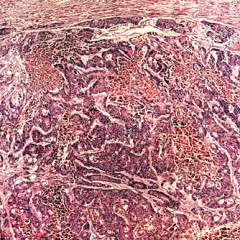THE GENETIC CODE OF CANCER
Nk Life AHCC

A study conducted in Britain showed the first complete map of the mutational processes that lie behind the development of tumors . It is a work of great importance , which could lead to new methods of treatment and prevention of a wide range of cancers .
The study was published in the journal "Nature" .
The researchers analyzed more than 7,000 genomes , or genetic codes , of common forms of cancer and found 21 so-called " signatures" of processes that change the DNA.
"It ' an important step to discover the processes that determine the formation of cancer ," said Serena Nik - Zainal of the Wellcome Trust Sanger Institute, who worked on the study . "Through detailed analysis , we can begin to use a large amount of information buried deep in the DNA , to understand how and why tumors are formed. "
All cancers are caused by mutations in the DNA that occur in the cells of the organism.
Scientists know with certainty that some habits are harmful and can increase the chances of developing cancer : such as chemicals contained in tobacco , which cause mutations in lung cells , which may favor the onset of lung cancer, or the spokes UV , which trigger mutations in skin cells which lead to skin cancer .
But science has yet to understand the biological processes that cause mutations that are behind most of the common cancers.
The team analyzed the genetic codes of 7,042 cases of cancer in people from all over the world , with a range of 30 different types of disease , to assess whether they were able to identify patterns or signatures of the mutational processes . The researchers found that all tumors contained two or more signatures , a finding that shows the variety of processes working together, when a tumor develops. They also found that different types of cancer have a different number of mutational processes . And some signatures are found in many types of cancer, while others are found only in one type. Of the 30 tumors analyzed , 25 had signatures resulting from mutational processes associated with aging.
In particular , the team also discovered that a family of enzymes called APOBECs , known for the ability to mutate the DNA , are connected to more than half of the cancers studied.
Dr. Stratton has described the search as such as the discovery of " archaeological traces " of many mutational processes that lead to most cancers . "This compendium of mutational signatures and the resulting insights into the underlying mutational processes have profound implications for our understanding of cancer," he concluded.
Source: Worldhealth
Nk Life AHCC
